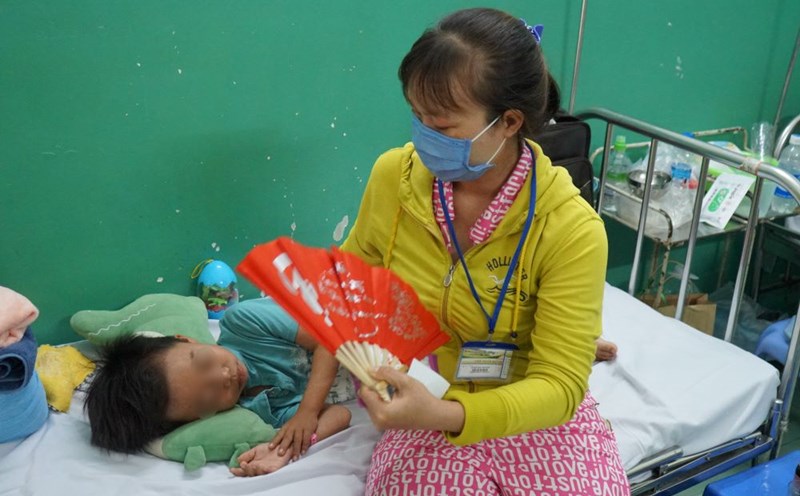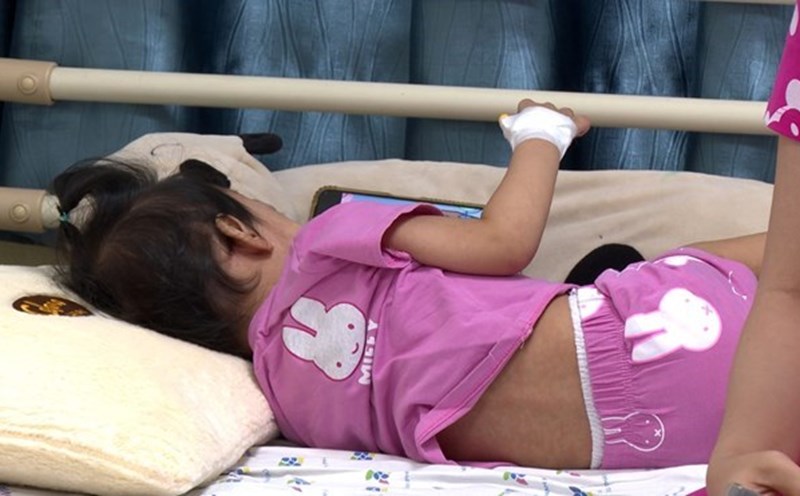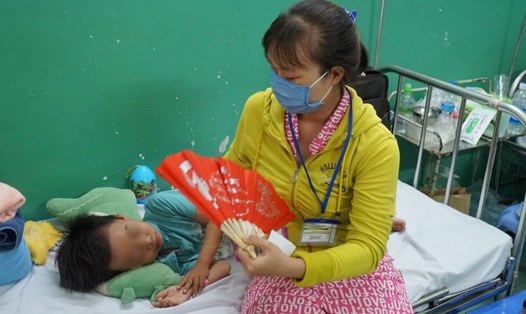Measles cases may increase by year-end
During the past week (October 18-25), the city recorded 7 more cases of measles, with no deaths. Of the new cases, 6 were unvaccinated and 1 had an unknown vaccination history. Hanoi is actively implementing a measles vaccination campaign to prevent the epidemic.
Since the beginning of the year, Hanoi has recorded a total of 35 measles cases; meanwhile, in the same period last year, Hanoi had not recorded any measles cases.
According to the assessment of the Hanoi CDC, measles cases are on the rise. Patients have been recorded sporadically in the area, mainly in young children who are not old enough to be vaccinated or have not been fully vaccinated. It is forecasted that in the coming time, more cases may be recorded, especially in the last two months of the year. To prevent measles, Hanoi is actively implementing measles vaccination for children in the Measles Vaccination Campaign.
Accordingly, district, county and town health centers continue to screen subjects and notify vaccination for children aged 1-5 years old, who are subjects in the measles-rubella vaccination campaign.
In particular, the health sector has strengthened surveillance of suspected measles rash fever, epidemiological investigation, collected samples for testing of 100% of suspected cases, organized zoning, and thoroughly handled areas with patients and outbreaks according to regulations.
Measles tends to develop strongly in winter and spring.
Dr. Nguyen Van Lam, Director of the Center for Tropical Diseases (National Children's Hospital), said that measles is an acute infectious disease caused by the measles virus, which tends to develop strongly in winter and spring, and can easily become an epidemic. Measles is common in young children and people with weak immunity, and can easily lead to dangerous complications and even death if not detected. People need to proactively implement effective disease prevention measures for children, especially reviewing the vaccination status and immediately vaccinating children to limit the risk of spreading the disease.
Measles is an infectious disease caused by the measles virus, commonly found in children under 5 years old. The disease is transmitted through the respiratory tract, by nasal and throat secretions of an infected person released into the air when the patient coughs, sneezes, talks, etc.
A case of measles can infect 12-18 people at a speed and spread much stronger than flu and chickenpox. If not detected early and treated promptly, the disease can cause dangerous complications such as: Laryngitis, bronchitis, pneumonia; encephalitis, meningitis; otitis media, enteritis, corneal ulcers; immunodeficiency, and can even cause death.
According to the Ministry of Health, the number of measles cases nationwide has increased eightfold compared to the same period last year, while the measles vaccination rate in many localities has not yet reached the required coverage level of 95%. This creates favorable conditions for the measles virus to spread. Furthermore, one of the reasons for the recent increase in measles is the disruption of the supply of expanded immunization vaccines in 2022-2023, causing many children to not be vaccinated or not receive enough doses, creating a gap in the immune barrier.
At the end of August 2024, Ho Chi Minh City officially declared a measles epidemic in the whole city in the context of rapidly increasing measles cases and 3 children died from measles. In some southern provinces and in Nghe An and Thanh Hoa provinces, the measles situation is also showing signs of increasing and becoming more complicated.











